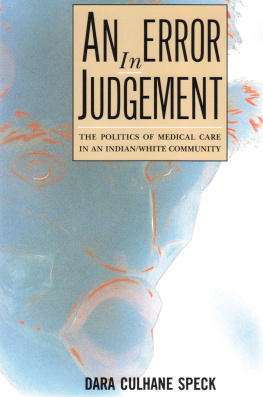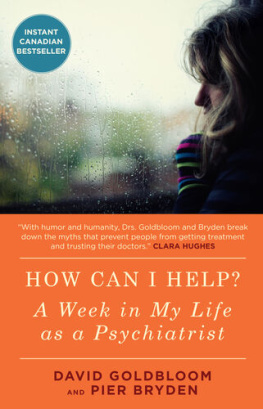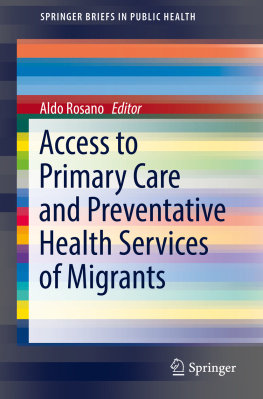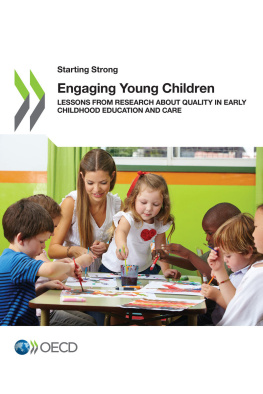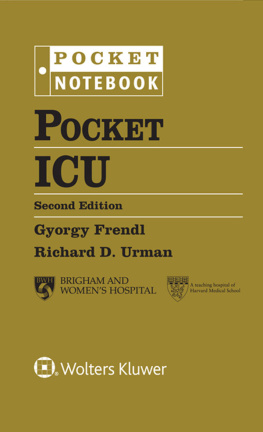UNLOCKING THE PAST
Unlocking the Past
The impact of access to Barnardo's childcare records
Gill Pugh
First published 1999 by Ashgate Publishing
Reissued 2018 by Routledge
2 Park Square, Milton Park, Abingdon, Oxon, OX14 4RN
52 Vanderbilt Avenue, New York, NY 10017
Routledge is an imprint of the Taylor & Francis Group, an informa business
Copyright Gill Pugh 1999
All rights reserved. No part of this book may be reprinted or reproduced or utilised in any form or by any electronic, mechanical, or other means, now known or hereafter invented, including photocopying and recording, or in any information storage or retrieval system, without permission in writing from the publishers.
Notice:
Product or corporate names may be trademarks or registered trademarks, and are used only for identification and explanation without intent to infringe.
Publisher's Note
The publisher has gone to great lengths to ensure the quality of this reprint but points out that some imperfections in the original copies may be apparent.
Disclaimer
The publisher has made every effort to trace copyright holders and welcomes correspondence from those they have been unable to contact.
A Library of Congress record exists under LC control number:
ISBN 13: 978-1-138-35238-4 (hbk)
This book is derived from a research thesis submitted for the degree of MA by Research at the School of Social Work, University of East Anglia, Norwich. Many thanks are due to the staff whose input on the MA course I valued highly, Dr Liz Trinder and Professor David Howe. I especially appreciate the contribution of my tutor Gill Schofield for her encouragement and constructive criticisms throughout the period of the study.
I would not have survived to complete the course and this book without the unfailing support and encouragement of my husband Steve, and the patience and good humour of my children Oliver and Laura when I ignored them and monopolised the computer for many long hours.
Whilst this study has been undertaken independently and in my own time, it has been enormously helpful to have the support and encouragement of my Manager, Collette Bradford, and colleagues in Barnardo's After Care, who have helped with advice, ideas, access to participants and typing of letters.
Most importantly, I am very grateful to all those who allowed me to interview them and use their experiences and reflections for this study. It was a pleasure and a privilege to meet them and I have learned much from them. Their contribution can only serve to increase awareness and understanding of the meaning of gaining access to their records, and to highlight the importance of providing quality services to meet their needs.
Gill Pugh
... to shake the tree of life itself And bring down fruit unheard of.
(Edwin Arlington Robinson)
In July 1995 the BBC broadcast a series of documentary films, Barnardo's Children, to commemorate 125 years of childcare by the charity. The films portrayed the work of Barnardo's since its founding in the 1860s up to the present day. Between 1866 and the early 1970s, Barnardo's was home to 350,000 children who spent all or part of their lives in its care in the UK, Canada and Australia. Some grew up in Barnardo's children's homes, some were fostered, others adopted, while some experienced a combination of care situations. Many of these children grew up unaware of their family backgrounds or reasons for being in care. The television documentaries illustrated both the early work of Barnardo's and the service it now offers to those formerly in its care who wish to discover their origins and make sense of their past.
Barnardo's received a massive response to the showing of these films. Their enquiry rates from adults seeking information about themselves rocketed from around 1,500 a year to an extra four thousand enquiries in the following weeks alone. Many of the enquirers had previously been unaware of the possibility of being able to see their records. For many the films stirred up long buried or forgotten memories and emotions, and aroused or revived a new hunger for information about themselves. Several new social work posts were created by Barnardo's to meet this huge and intense demand. Finding this an irresistibly fascinating area of work, I applied for, and was appointed to one of these posts.
In my new professional role, curiosity about the impact upon people who, in adulthood, sought and discovered highly emotionally-charged information about their origins, led me to the topic for this study. I sought to gain a better understanding of adults who approached Barnardo's and requested to see their personal files. I wanted to explore the impact upon those adults, who were generally in the middle or later years of their life, of reading information about their family background, the reasons for their admission to care and what happened during their time in care. Did, for example, such information change the way in which people perceived themselves, or the way in which they were perceived by others around them? Did it have an effect upon people's self-esteem, or upon their relationships with significant others in their lives? Might the impact of the information be affected by factors such as the nature of the contents (whether the records contained difficult or painful information), or the manner in which the information was imparted? Would the person's previous life-experience affect the impact of receiving this information?
As a social worker working in the After Care Section of Barnardo's it was my job to prepare and share this information with such people, and to help them to try to make sense of the past. However the constraints of finite resources and a lengthy waiting list mean that long-term involvement or counselling of the people I saw was not possible, and the majority are seen by a social worker only once or twice. It is difficult to get a perspective of the effects of such an experience beyond the initial impact witnessed during the actual sharing of the records. Some choose to share their feelings and responses in subsequent contacts with the organisation through articles they write for the magazine for 'Old Boys and Girls' (as they are still commonly known) and through meetings at reunions of former residents. But there appeared to have been no formal or rigorous attempt to explore the impact of this experience. As I discovered upon undertaking the literature review for this study, research into adults who grew up in care generally is very sparse, and research into looking at care records appears to be virtually nonexistent, in contrast to the interest shown in access to birth records after adoption.
Through my social work practice I was aware that people requested access to their files for a variety of reasons, and with very varying expectations. The degree of prior knowledge of their family background or reasons for admission to care also varied widely from almost total ignorance of the past through the whole spectrum. I hoped that my study would begin to explain how these differences affected the process of seeing the records and what impact this produced.
The choice of topic for this study was influenced not only by personal and professional curiosity but by an understanding of its importance in a broader perspective. The developments within Barnardo's which have led to the opening up of its records for access by former residents need to be seen within the context of changes within society in general and changes in attitudes towards the family and childcare social work in particular. The 'child rescue' approach to child welfare of past years has been replaced by current legislation which emphasises partnership with, and support for, families. Parental contact with children in care, and increasingly post-adoption, is promoted more vigorously, and current policies recognise the importance of helping children to develop a strong sense of identity through knowledge and understanding of their origins. However Berridge (1997) notes the dearth of research into the impact of such developments, and whether the intentions behind the legislation have been fulfilled.



